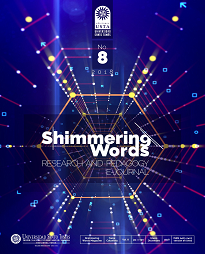SNAP circuits program promoted by Santo Tomás university and the faculty of electronic engineering
##plugins.themes.bootstrap3.article.main##
Résumé
The Professors of Electronic Engineering Faculty at the Santo Tomas University are members of the IEEE Institute of Electrical and Electronics Engineers, within the activities proposed by this institute is launched the Snap Circuits program, it belongs to the Electron Device Society EDS chapter, (EDS-ETC Program, 2017). The program wants to be known in a practical way the teaching of Sciences, Mathematics, and in general Technology, with the acronym STEM. There are many paradigms that expert people have about the process of teaching and learning, and it is the same way when STEM is taught, the methodology is discussed in different events and by multiple authors. Such as it was mentioned before, the program of Snap Circuits is new approach of learning process, mixing practices with Snap Circuits kits and written guides for promoting STEM knowledge (Fairweather, 2008), the kits were donated by the IEEE to the Santo Tomás University, the purpose is to use teaching-learning methodologies in which practical evidences allow to acquire knowledge in an easy way, the guides to use the kits were designed by professors of Electronic Engineering Faculty. One feature of these practices is to work with students of different economic situation levels, but especially those who never have had the opportunity to use this technology as a learning method.
##plugins.themes.bootstrap3.article.details##
Comment citer
Barón Barón, A. Ávila, & Casallas Gutiérrez , R. (2019). SNAP circuits program promoted by Santo Tomás university and the faculty of electronic engineering. Shimmering Words: Research and Pedagogy E-Journal, 8, 102-114. Consulté à l’adresse http://revistas.ustatunja.edu.co/index.php/shimmering/article/view/1799
Rubrique
Artículos-8
Références
Anwari, I. (2015). Implementation of Authentic Learning and Assessment through STEM Education Approach to Improve Students’ Metacognitive Skills. Tokio, Japan.
Fairweather, J. (2008). Linking Evidence and Promising Practices in Science, Technology, Engineering, and Mathematics (STEM) Undergraduate Education.
Felicidad, G. (2002). Cómo elaborar unidades didácticas en la educación infantil. España: Cisspraxis.
Flux, F. a. (13 de 3 de 2011). Fisics and Flux. retrieved from: http://aplusphysics.com/flux/aplusphysics/snap-circuits-for-em-labs-edtech- physicsed/
Guarín, F. (2014). Eds-Etc. retrieved from: https://www.youtube.com/watch?time_continue=11&v=6NlgiYTYfRw
Labov, J. B. (2009 ). Effective Practices in Undergraduate STEM Education Part 1: Examining the Evidence. Life Science Education, 157-161.
Schwartz, X. G. (2015). Classroom Implementation of Active Instructional Strategies for Undergraduate STEM Education . International Journal of Information and Education Technology, 688-692.
Fairweather, J. (2008). Linking Evidence and Promising Practices in Science, Technology, Engineering, and Mathematics (STEM) Undergraduate Education.
Felicidad, G. (2002). Cómo elaborar unidades didácticas en la educación infantil. España: Cisspraxis.
Flux, F. a. (13 de 3 de 2011). Fisics and Flux. retrieved from: http://aplusphysics.com/flux/aplusphysics/snap-circuits-for-em-labs-edtech- physicsed/
Guarín, F. (2014). Eds-Etc. retrieved from: https://www.youtube.com/watch?time_continue=11&v=6NlgiYTYfRw
Labov, J. B. (2009 ). Effective Practices in Undergraduate STEM Education Part 1: Examining the Evidence. Life Science Education, 157-161.
Schwartz, X. G. (2015). Classroom Implementation of Active Instructional Strategies for Undergraduate STEM Education . International Journal of Information and Education Technology, 688-692.

